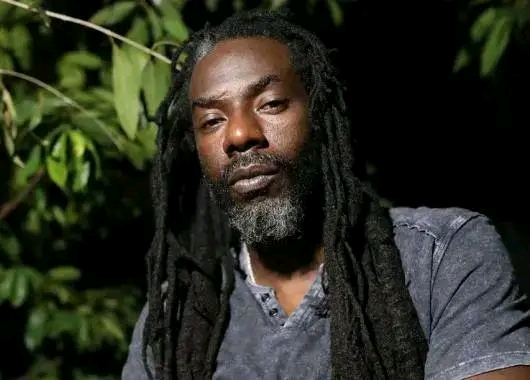The Shocking Truth About Buju Banton’s Time in Jail – What He Revealed Will Leave You Speechless
Buju Banton, the Grammy-winning reggae icon, is no stranger to controversy. Known for his soulful voice and powerful lyrics, the artist’s career took a dramatic turn in 2011 when he was sentenced to 10 years in a U.S. prison on drug-related charges. But what happened behind bars, and how did it transform the man we know today? Let’s explore the shocking revelations about his time in jail and the lessons that shaped his comeback.
—
The Arrest That Shook Reggae Music
In 2009, Buju Banton, born Mark Anthony Myrie, was arrested in Florida on charges of conspiracy to possess and distribute cocaine. The reggae world was left in disbelief. How could one of the genre’s most beloved figures, celebrated for his spiritual and conscious lyrics, end up entangled in such allegations?
Despite pleading not guilty, Buju was convicted after a lengthy legal battle. His supporters, including prominent figures in music and politics, claimed the case was riddled with inconsistencies. Nevertheless, Buju began his decade-long sentence in 2011.
—
Life Behind Bars
For someone who had spent most of his life performing on global stages, prison was a harsh reality. Buju later revealed how his time behind bars tested his faith, resilience, and sense of purpose. In interviews, he described it as an isolating experience that forced him to confront his past and focus on self-reflection.
He shared that he leaned heavily on his spirituality to survive the ordeal. “Prison doesn’t have to be the end of your story,” he said in a post-release interview. “It can be the beginning of something greater if you let it.”
—
The Shocking Revelation: A System Set Against Him?
One of the most startling claims Buju made after his release was that he felt targeted by the system because of his influence. He stated that his activism through music and outspoken nature made him a “threat” to certain powers.
Buju’s conviction raised questions about entrapment, as evidence suggested he may have been lured into a drug deal by undercover informants. His supporters argued that the system was using his case as an example to silence a prominent voice.
—
The Spiritual Awakening
In prison, Buju turned to his faith for guidance. He read extensively, meditated, and reconnected with his Rastafarian beliefs. This period of reflection inspired him to use his music as a force for good, doubling down on his commitment to spreading messages of hope and resilience.
Buju described this transformation as a “rebirth.” It wasn’t just about surviving prison—it was about coming out stronger, wiser, and more determined than ever to uplift others through his music.
—
The Triumphant Return
After serving his sentence, Buju Banton was released in December 2018. His homecoming was nothing short of a hero’s welcome, with thousands of fans celebrating his freedom. Within months, he launched the Long Walk to Freedom tour, selling out arenas worldwide and proving his enduring influence.
His first post-prison album, Upside Down 2020, showcased his growth, blending socially conscious themes with his signature reggae sound. Tracks like “Buried Alive” and “Steppa” reflect the lessons learned during his incarceration and his renewed sense of purpose.
—
Legacy and Redemption
Buju Banton’s journey from incarceration to redemption is a testament to his resilience and the transformative power of music. He remains one of reggae’s most influential figures, using his platform to address social injustices and inspire change.
While his time in jail was a dark chapter, Buju’s story reminds us that even the most challenging experiences can lead to growth and reinvention. As he once said, “Your trials don’t define you—your ability to overcome them does.”
—
What do you think about Buju Banton’s incredible comeback? Share your thoughts in the comments below!

